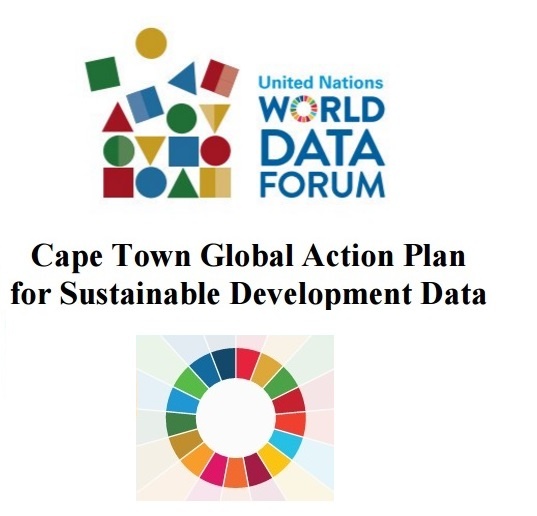The way forward : Global Action Plan for Sustainable Development Data


The first UN World Data Forum (15-18 January, 2017) served as a launching pad where diverse data producers and users got behind the Cape Town Global Action Plan for Sustainable Development Data, which will be formally approved by the UN Statistical Commission at its 48th session in March 2017.
_____________________________________________________________________________________________________
2017 is the second year of implementing the 2030 Agenda for 17 Sustainable Development (SDGs), an agenda that will guide international development efforts and national policy making through 2030.
The first UN World Data Forum - that took place in the South African city of Cape Town, 15-18 January 2017 - explored ways on how to improve and modernize national statistical systems.
Indeed, “Data and accurate information 'critical' in the implementation of Agenda 2030… According the UN statistics, … Seventy-seven out of 155 countries monitored do not have adequate poverty data, although there have been clear improvements in the last decade” (an interview with Wu Hongbo, UN Under-Secretary-General for Economic and Social Affairs).
UN World Data Forum on Sustainable Development Data has been conceived (since 2014) as the suitable platform for intensifying cooperation with various professional groups, such as National Statistical Offices (NSOs), information technology and geospatial information managers, and data scientists among other representatives of government, intergovernmental organizations and civil society.
During the first UN World Data Forum, representatives from NSOs, data scientists from the private sector and academia, international organizations, and civil society organizations discussed challenges, opportunities and initiatives for harnessing the power of data and monitoring to contribute to the achievement of the 17 SDGs.
In addition to the opening plenary, titled Harnessing the Power of Data for Sustainable Development, the first UN World Data Forum included 73 plenary and breakout sessions. Those directly focused on data as the most important challenge faced by data & information management sectors today were the following:
(Innovations and synergies across different data ecosystems) | (Innovations and synergies across different data ecosystems) |
(Innovations and synergies across different data ecosystems) | (Innovations and synergies across different data ecosystems) |
(Innovations and synergies across different data ecosystems) | (New approaches to capacity development for better data) |
(Understanding the world through data) | (Data principles and governance) |
(Data principles and governance) | (Data principles and governance) |
(New approaches to capacity development for better data) | (New approaches to capacity development for better data) |
(Data principles and governance) | (Data principles and governance) |
(Understanding the world through data) | (Understanding the world through data) |
(Data principles and governance) | (The way forward: A Global Action Plan for data) |
# Summary of the First UN World Data Forum (UN World Data Forum Bulletin, January, 2017).
The closing session provided the key messages on how:
- the different data communities will work together to ensure the data production and utilization are improved;
- data are fully utilized for the implementation of the sustainable development agenda and for the review of its advancement.
At the end of this session, the Cape Town Global Action Plan for Sustainable Development Data was introduced. This Plan calls for the full, active and focused commitment of government, policy leaders and the international community to undertake key actions under six strategic areas:
1) Coordination and strategic leadership on data for sustainable development;
2) Innovation and modernization of national statistical systems;
3) Strengthening of basic statistical activities and programme;
4) Dissemination and use of data for sustainable development;
5) Multi-stakeholder partnerships for data for sustainable development;
6) Mobilize resources and coordinate efforts for statistical capacity building.
The Plan will be formally approved by the UN Statistical Commission at its 48th session in March 2017.
# DOWNLOAD the Cape Town Global Action Plan for Sustainable Development Data.
_____________________________________________________________________________________________________
Related contents:
- Progress towards the Sustainable Development Goals Report of the Secretary-General (IV. Note on the data and indicators, UN, Economical and Social Council, p.25, 2016)
- Global Sustainable Development Report (UN, Sustainable Development Knowledge Platform, 2016)
- Technology Facilitation Mechanism (TFM) supporting the implementation of the SDGs.

